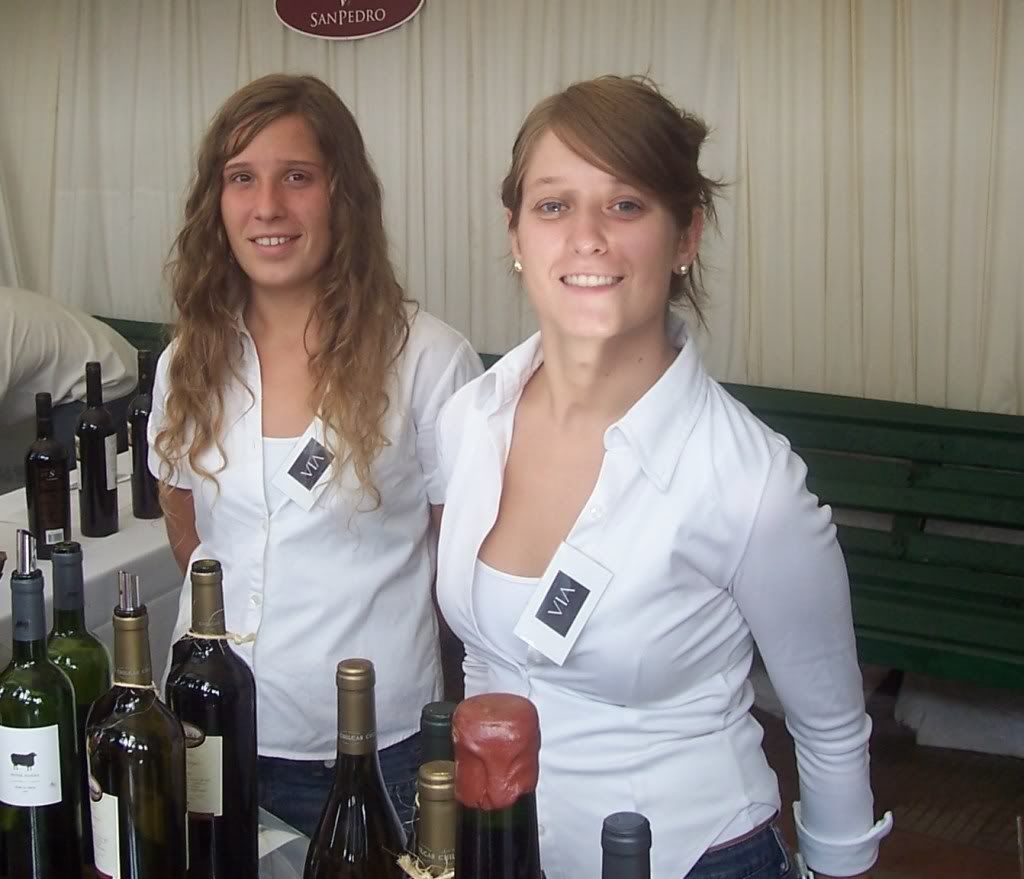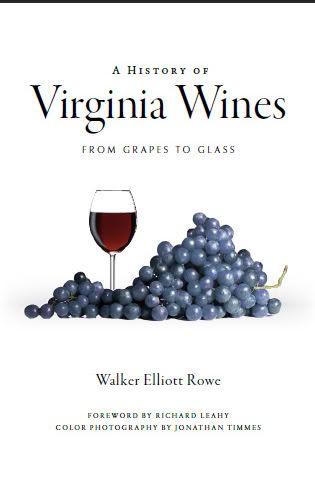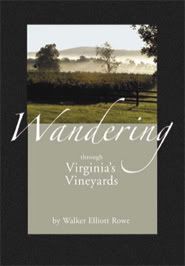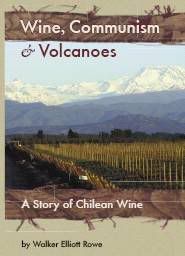How can Virginia wineries do a better job of selling their products beyond the boundaries of the Virginia wine country? One way to do that is to open retail establishments dedicated to selling Virginia wines in the heavily populated Washington, D.C. suburbs of Northern Virginia. Another is to look north to New York State to see how the wineries there are able to sell their wines to the busy New York City market. There, a chain of wine shops, Vintage New York (www.vintagenewyork.com), is dedicated to selling New York wines to New Yorkers.
The farming and marketing situation in New York State is similar to that in Virginia. Virginia has around 100 wineries. New York has 175. Virginia has 2,500 acres of grapes. Not including Concord grapes, used to make juice and cheap wine, New York is somewhat larger with their largest grape-growing region, Long Island, growing 4,000 acres. While both states produce excellent wines from both small and medium-sized wineries, both states have yet to find a wide national and international following.
Robert Ransom and his partner Susan Wine operate two Vintage New York farm winery shops in Manhattan. While Virginia wines are sold through distributors in New York City--Horton, Barboursville, Kluge, and Williamsburg wines are all sold there--only New York wines may be sold in New York under the New York farm winery law. This means Vintage New York is able to operate as a distributor for the smaller wineries. The reason for this is Robert holds a winery license for his Rivendell Winery in the Hudson Valley.
New York City is, of course, unlike another other city in America. While Robert Ransom does not exactly dismiss Washington as a provincial backwater, he does say that New York is the "most important wine market in the world." Certainly at first glance the situation vis-à-vis retail sales is different there. Senator Hillary Clinton has visited New York's Finger Lakes and Long Island grape growing regions with both her star-quality appeal and New York City sommeliers in tow. The result is that some prominent New York restaurants now include New York wines on their wine list. Regarding legislation, currently the wineries and distributors are fighting each other in court over the legality of direct shipment. Robert Bork, Ronald Reagan's failed nominee to the Supreme Court, represents the distributors while Kenneth Starr, Bill Clinton's prosecutor, represents the wineries. (That lawsuit includes one Virginia plaintiff, Swedenburg Winery.)
Robert Ransom calls himself a full-time "proselytizer" who is constantly trying to sell New Yorkers on the merits of New York wine. Almost every day he is conducting tasting at either one of his two Manhattan locations or giving lectures at such venues as the famed lecture hall, the 92nd Street Y.
About selling New York wines to New Yorkers Robert says, "It's not difficult to get them to enjoy and appreciate the wines once we get it into their mouths. The whole reason that we opened this store was to expose New Yorkers to their own local product that they probably didn't have an exposure to before."
Robert Ransom says that New Yorkers are sometimes loath to drink what is grown in their own backyard. He says that some of his best customers are tourists. They amble into his wine shops in Soho and the Upper West Side and are somewhat incredulous that wines are made in New York. They ask, "Where do you grow grapes? In Central Park?"
Robert's experience in New York bodes well for Virginia wineries were a similar chain of wine shops to open in Northern Virginia. For Robert Ransom says, "We are probably every one of our suppliers biggest customers." (Granted there is a wine shop, Ye Olde Wine Shoppe, devoted to Virginia wines in Occoquan. But that is outside the heavily populated D.C. suburbs.)
The wine retail business is a tough one with lots of competition for both Virginia and New York wines coming from heavily-marketed, emerging wine regions in Australia and New Zealand and low cost regions like Chile. And California is currently suffering a so-called "grape glut" that has seen prices drop to as little at $1.99 for Charles Swan's wines, better known by the short-hand notation "Two Buck Chuck". Commenting on all the competition, particularly in New York, Robert Ransom says, "New York City is a very loud place. There's a lot of advertising. It's very hard to get heard among all that noise. "
Robert's answer to all this clutter is to make New York wines his niche. He says, "This day and age everyone, with the exception of Walmart, is a focused niche retailer. We took that [NY wine] and made that our niche."
Continuing, "We have chosen 200 wines from maybe 65 of so different wineries and that's all we sell. But they key is everything that we sell is open for the tasting. So people can come in and taste these wines. It's a tasting room environment."
There are several possibilities for Virginia wineries to broaden their reach beyond customers who travel to their tasting rooms, small wine shops in small towns, and Giant and Safeway grocery stores, which sell but do not promote their products. Shawn Walker is special agent in charge of the Virginia ABC. He says that a Virginia farm winery can operate up to 5 remote locations. Prince Michael Vineyards has one such location at Fashion Square Mall in Charlottesville.
Another possibility is American Wine Country (www.americanwinecountry.com) which will be opening a 75,000 square foot retail establishment that in Northern Virginia. One of the San Francisco partners in this firm, Terry Marasco, says, "American is an important distinction as we will be emphasizing American agricultural products--both wine and food." He adds that while a gourmet wine shop selling both American and imported wines will anchor the mall, Virginia wineries will be able to rent floor space on a temporary basis to peddle their wares. Terry says Virginia wineries can, "Rent long term space and set up retail cooperatives." He says the mall staff can help man the booths when the wineries own personnel are not available. Terry adds that, "This is a trend in the California wine business now as is opening retail shops for a specific winery."
Agent Walker says that Virginia wineries are also able to act as their own distributor. So they could sell their wines directly to a wine shop that, like Vintage New York, operate under a farm winery license. But Terry Marasco and Robert Ransom point out that the larger wineries perhaps would not want to make an end-run around their distributors. In the case of Vintage New York, Robert Ransom buys some wines directly from wineries and other wines he buys from the winery's distributors.
Chris Pearmund, of Pearmund Cellars, commenting on the prospects of a Vintage New York style wine shop in Northern Virginia says, "I and few other wineries have thrown this idea around for 2 years, knowing it is a good idea and should do very well." He adds that, "Customers have been proving themselves by coming to where wine it made; [it's] time to bring a dedicated wine shop to them."
Bruce Zoecklin, enologist of Virginia Tech says, "We are making world-class products and could do a better job of marketing them."






No comments:
Post a Comment